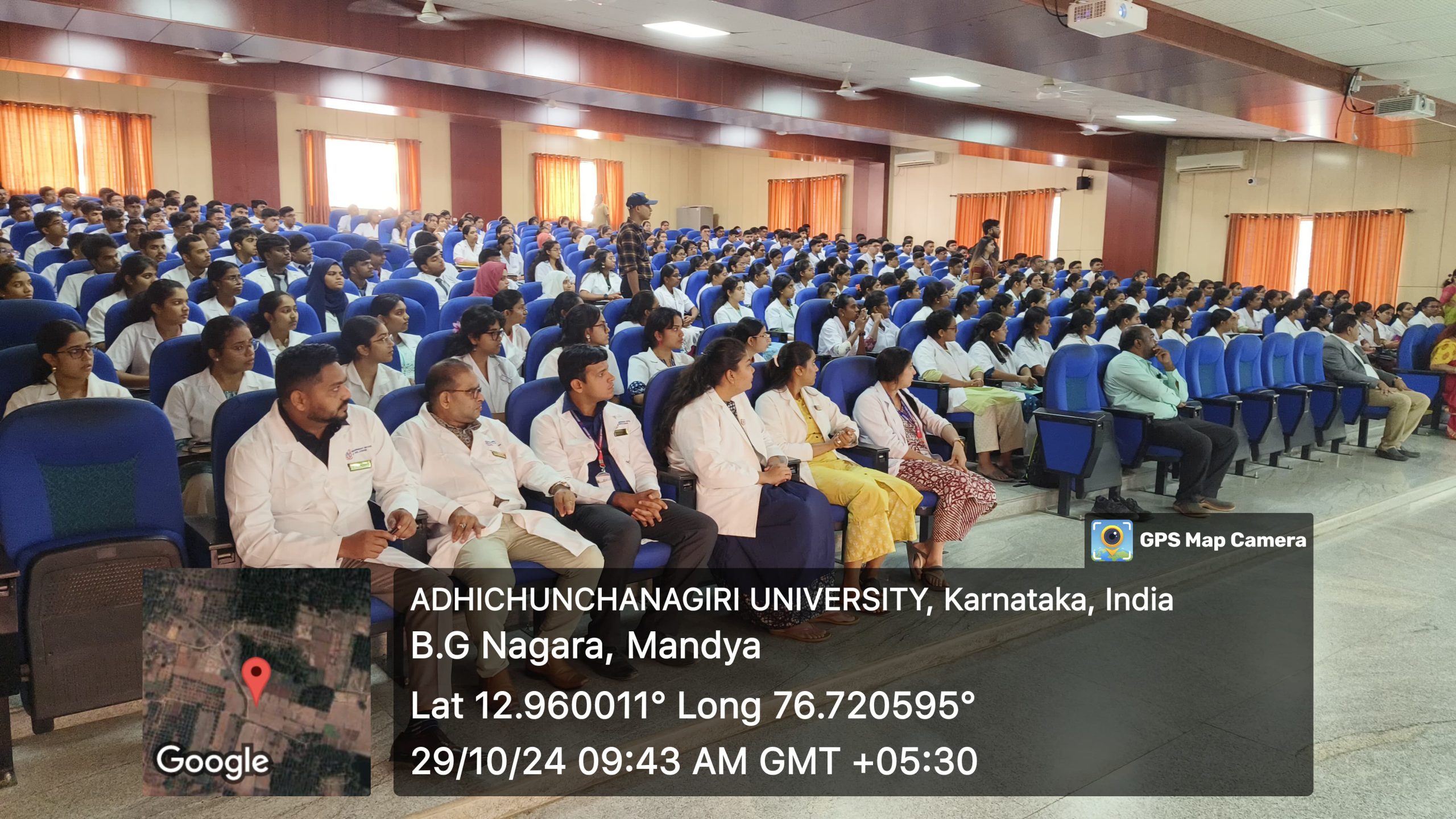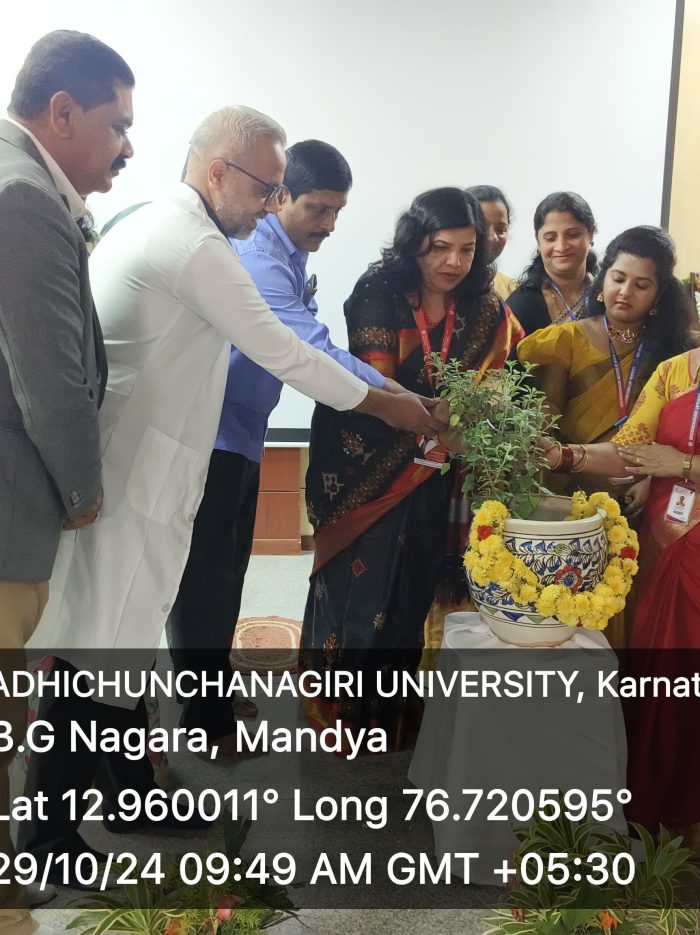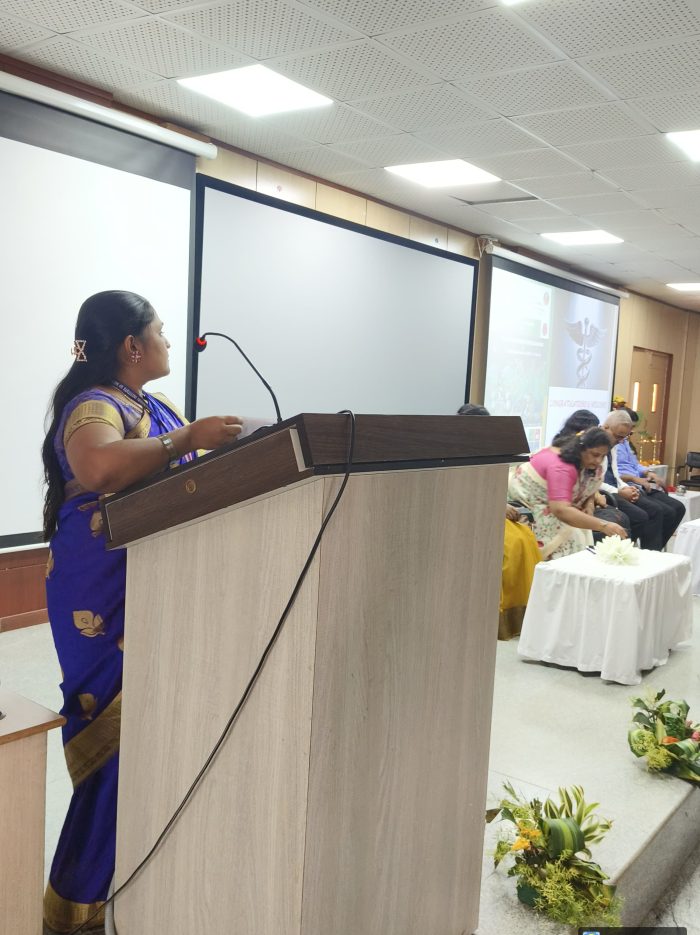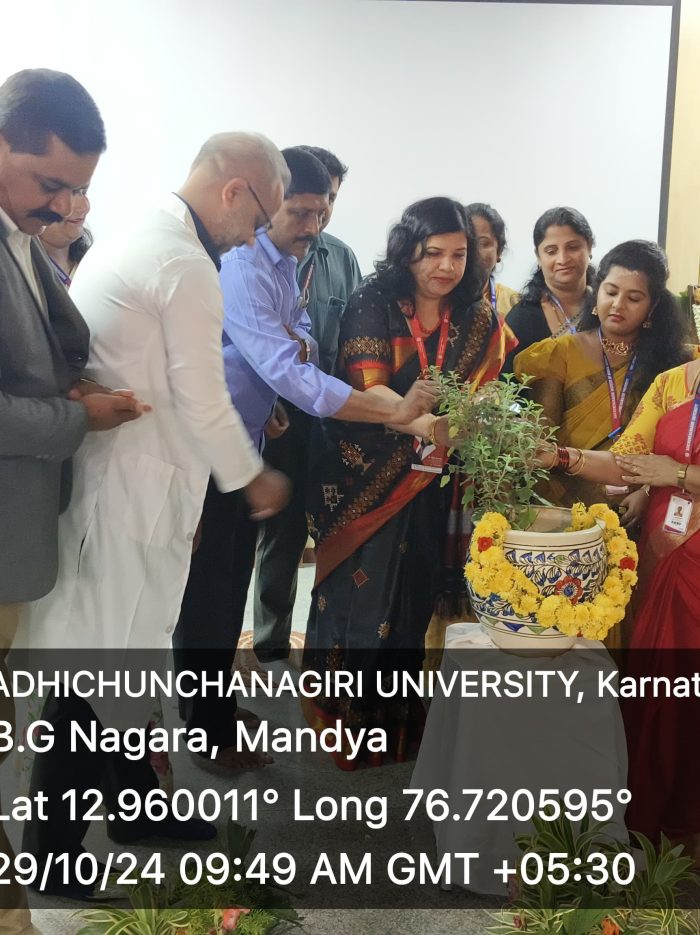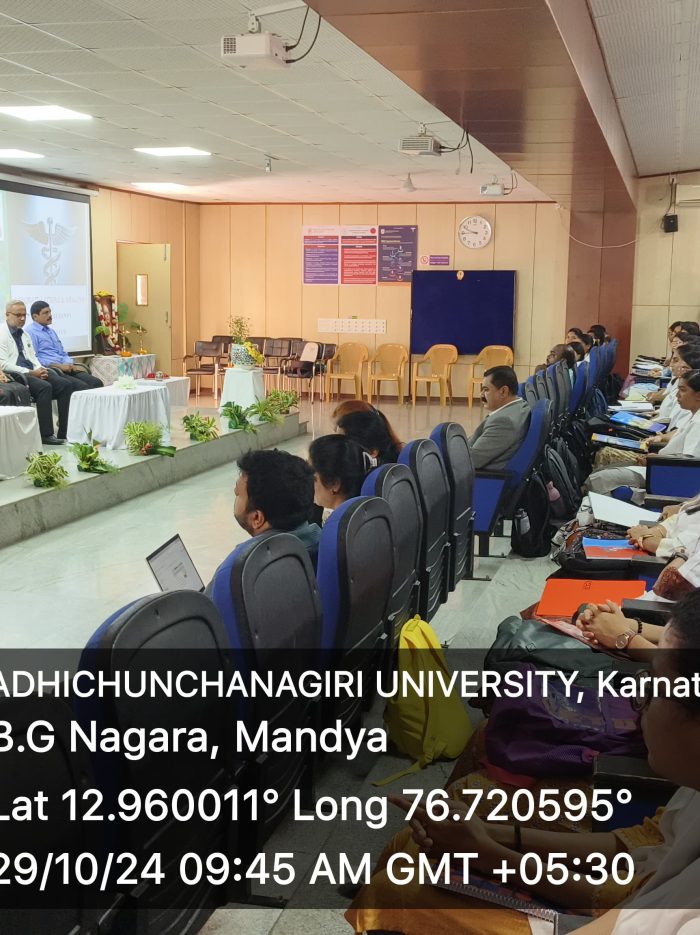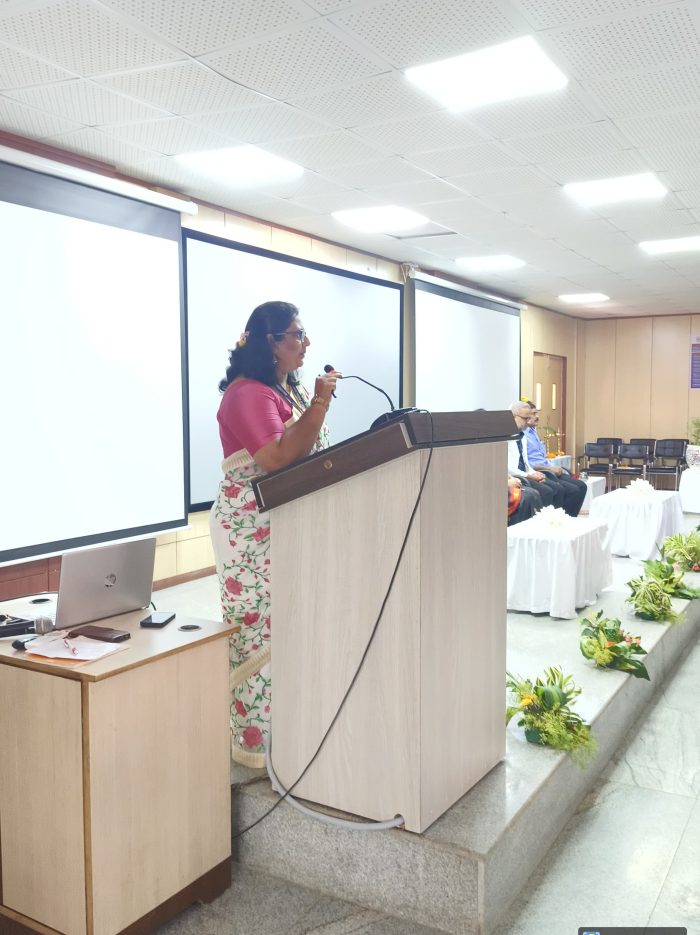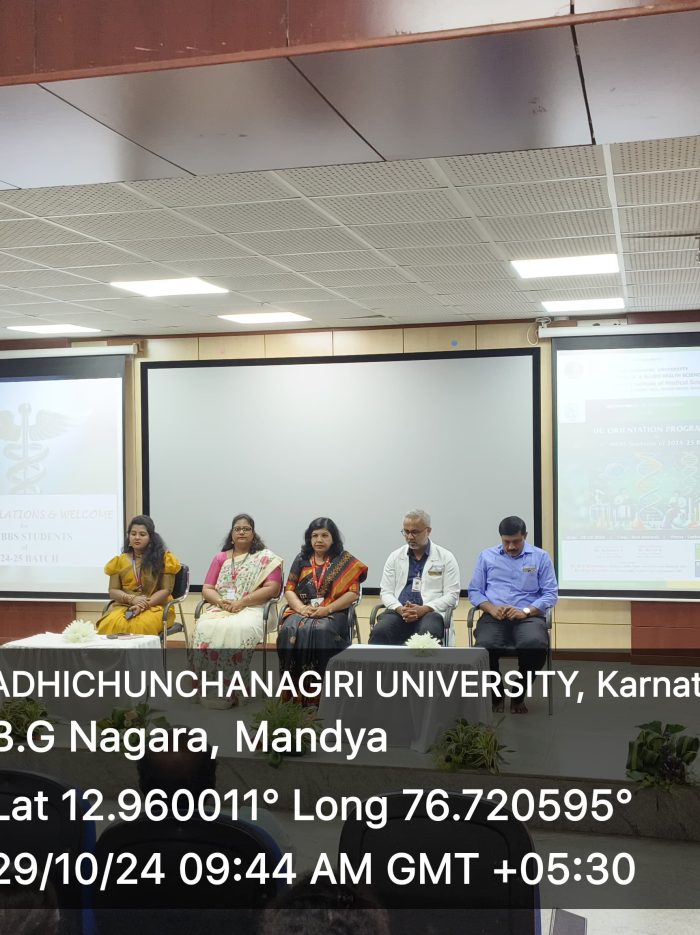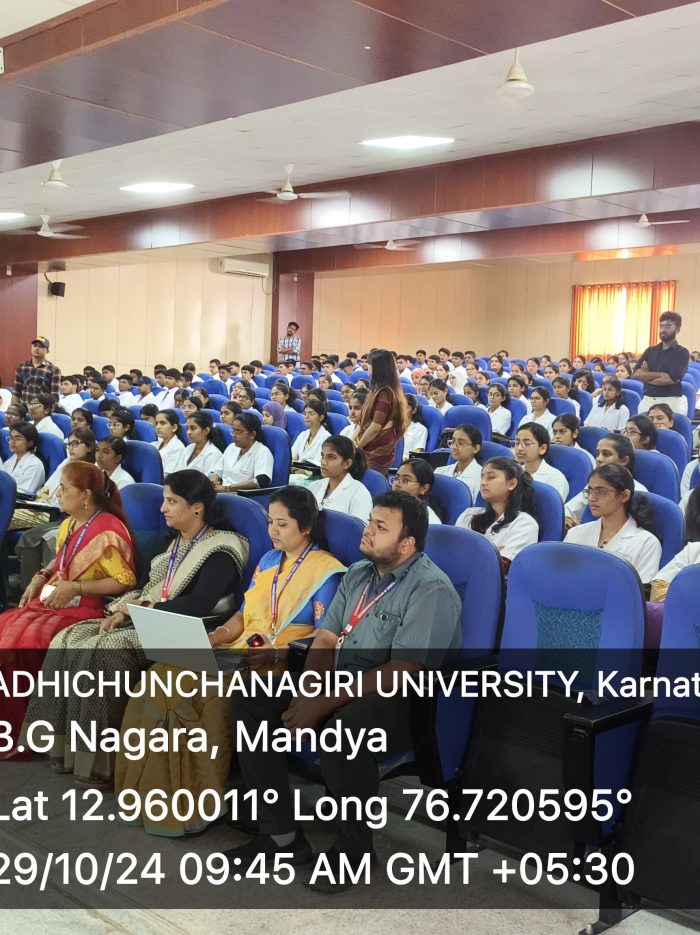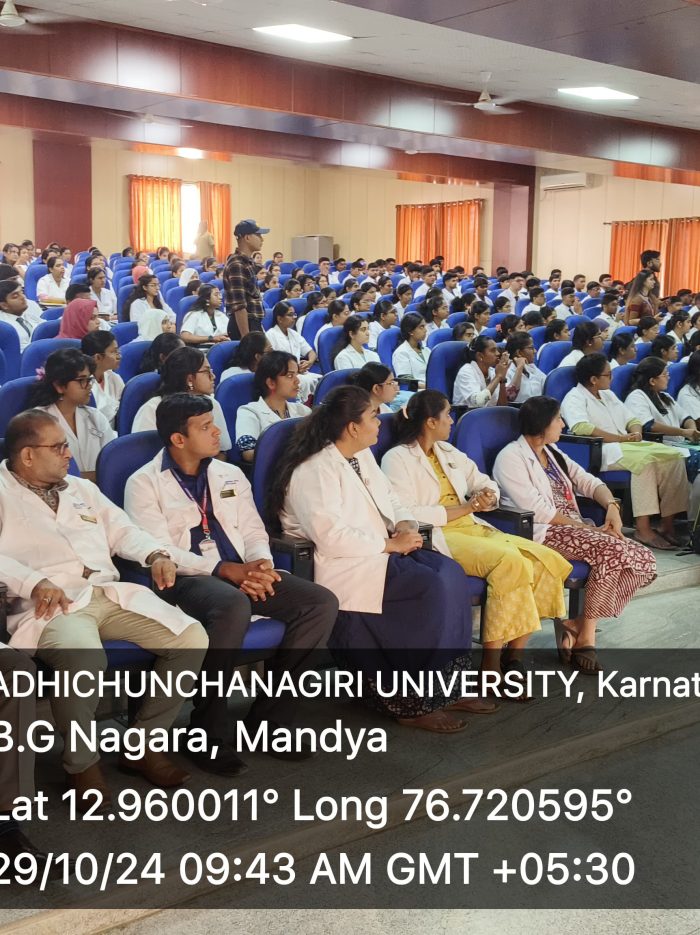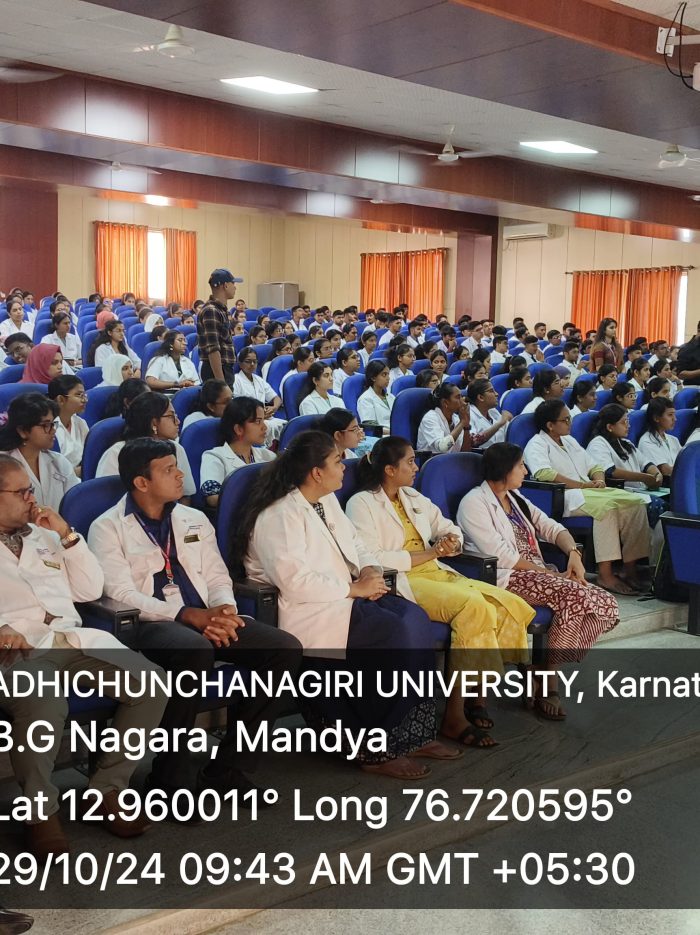|
Brief Report of the Event (maximum about 200 words)
|
The Department of Biochemistry conducted an orientation program for the 1st MBBS 2024 batch on October 29, 2024, The program began with a ceremonial watering of the Tulsi plant and was attended by 250 students.
The program aimed to provide a comprehensive overview of the department’s structure, curriculum, and assessment methods, establishing a strong foundation for their studies in Biochemistry.
Dr. Shilpashree Y D, along with Dr. Balaji and Ms. Veena S C, facilitated a pre-test for the students to gauge initial knowledge. The program was moderated by Mrs. Johnsi Priya J and Ms. Inchara S. Dr. Asharani N, Professor and Head of the Department, warmly welcomed the students, creating an atmosphere of support and approachability.
Dr. Mythri S, Assistant Professor led the staff introductions, helping students become acquainted with the faculty members. Following this, Dr. Asharani N, presented the departmental rules and regulations and emphasized the importance of maintaining a professional and respectful environment during academic hours. Dr. R Sandeep Varma, Assistant Professor, provided students with an overview of the upcoming one-year curriculum, detailing its goals, objectives, and structure. Dr. Aliya Nusrath, Professor, explained the assessment criteria and outlined the format for formative and summative evaluations, including eligibility requirements. Following this, Dr. Rajeshwari A, Associate Professor, introduced students to the teaching-learning methods, recommended textbooks, and essential resources for their studies. Dr. Namitha D, Associate Professor, emphasized the significance of Biochemistry in the field of medicine, highlighting its clinical applications and relevance. To conclude, Dr. Shilpashree Y D conducted a post-test to assess students’ understanding following the session. This collaborative effort by the entire department ensured a comprehensive and well-organized orientation for the new students.
|
|
Feedback Analysis
|
Positive Feedback:
· Participants expressed that, the events of the program achieved the objectives.
· The program conducted was effective enough to orient the students towards the relevance of biochemistry.
· Attendees highlighted on effectiveness of the program which included on the syllabus, exam pattern, scheme of evaluation etc.
Constructive Criticism:
· Some participants suggested on minimizing the duration of the event, timely completion incorporating more case studies or real-world examples to further illustrate the application of assessment tools.
· A few attendees expressed interest in requirement of additional information of the pattern of examination and assessments.
|
|
Outcome
|
· Faculty Familiarity: Students became acquainted with the Biochemistry department’s faculty members, fostering a sense of approachability and support.
· Understanding of Rules and Regulations: Students gained clarity on departmental rules and regulations, creating awareness of expected conduct and compliance standards.
· Clear Curriculum Roadmap: Students received a structured overview of the nine-month curriculum, helping them align with the program’s objectives and timelines.
· Awareness of Teaching-Learning Resources: Students were introduced to the essential resources, books, and tools, encouraging effective self-study and engagement in the subject.
· Comprehension of Assessment Structure: Students understood the framework for both formative and summative evaluations, preparing them for ongoing assessments and milestones.
· Insight into Biochemistry’s Relevance in Medicine: Students gained awareness of the role Biochemistry plays in the medical field, enhancing motivation and contextual understanding.
· Baseline Knowledge Assessment: The post-test provided a snapshot of students’ initial understanding, guiding faculty on areas needing additional focus in the coming months.
|
